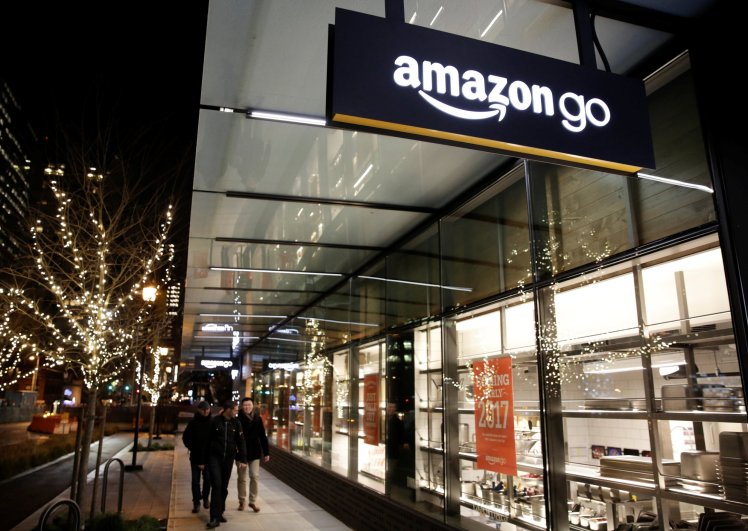 It appears that the time is right. Or at least, desperate times call for desperate measures. Some of the world’s biggest retailers are finding life a lot harder than before, and are finally being forced to reconsider the very heart of their business model. Brand marketers too, are finding it harder than ever to engage with their consumers. An ever fragmenting media environment, attention spans measured in micro-seconds, and shoppers trained to hunt for bargains: all are squeezing brand margins to such an extent that many brands are faced with the prospect of extinction – either at the hands of their owners, or at the hands of the retailers who have historically stocked them.
It appears that the time is right. Or at least, desperate times call for desperate measures. Some of the world’s biggest retailers are finding life a lot harder than before, and are finally being forced to reconsider the very heart of their business model. Brand marketers too, are finding it harder than ever to engage with their consumers. An ever fragmenting media environment, attention spans measured in micro-seconds, and shoppers trained to hunt for bargains: all are squeezing brand margins to such an extent that many brands are faced with the prospect of extinction – either at the hands of their owners, or at the hands of the retailers who have historically stocked them.
Tesco’s Dave Lewis has offered to reach out a hand, and create a new and different retail/brand relationship. Beyond the natural (and understandable) distrust, I’m sure many suppliers will be happy to grab that out-stretched hand; to quickly end the misery of being beaten within an inch of their lives on every trip to Tesco’s head office in Cheshunt. But should brand owners be so quick to grasp the olive branch? I’d argue yes, but they should see this as an opportunity to ‘renegotiate’ the very essence of their agreements. What should manufacturers look for in their new retail partnerships?
Retail Partnerships must focus on the shopper
The heart of success lies in marketing more effectively, and that means focusing on a specific target customer and meeting their needs better than others. Retailer have failed on both of these counts. They have tried to win with everyone, rather than segmenting and focusing. And they have focused on price, one element of a marketing mix, as their primary source of ‘customer value’. Manufacturers should demand that ‘shopper value’ lies at the heart of all initiatives and negotiations.
Be careful what we mean by ‘partnership’
When I talk about retail partnerships I don’t mean ‘in love’. I’m not suggesting that retailer and manufacturer will somehow skip off into the sunset. Retailers and brands don’t have the same goals. While a brand marketer is focused on influencing what shoppers buy, the retailer is more interested in where. When these two goals overlap, there is opportunity to collaborate. But we’re not talking marriage, I’m not even talking monogamy. Retailers will need multiple brand relationships; as will brands. The relationship shouldn’t be dressed up as anything more than it actually is: merely two parties who decide that they can win better through collaboration. Nothing more, nothing less. It is an open marriage of convenience, if that isn’t stretching the marital metaphor a little too far.
Stop treating me like a customer
Suppliers must demand that retailers stop treating them as customers. Yes, you read that write. A big part of the sickness which exists in modern retail is a reliance on supplier fees rather than profit on sales to shoppers. As soon as retailers start buying products because they can elicit a fee, rather than any consumer or shopper related rationale, they have lost the plot. Brand manufacturers should demand that fees be abolished, or be simply related (directly) to services provided. Stock my product? Contribute to the costs of stocking it. But where it sits on the shelf and how much space it has (and whether it even gets on the shelf in the first place)? That has to be based on what will work for shoppers.
Stop selling data
Suppliers should demand free access to all relevant retail data. Retailers must share it willingly, with due provision for confidentiality, to manufacturers who will use it to develop a better understanding of shoppers. For retail partnerships to work, however, there must also be some reciprocity. The contract should stipulate what is provided, and what brand owners will do with it.
Stop asking for unrealistic riders
There are many myths around the music industry of prima donna artists requesting crazy riders – conditions attached to the contract. Van Halen allegedly demanded bowls of M&M’s with the brown ones removed: Madonna apparently needed brand new toilet seats. Retailers do this to manufacturers. They ask for pointless exclusive products, for example. Not because there is a desperate need for the differentiation, or any differentiated shopper need, but because the retailer has failed to make anything else in their shopper experience differentiated. And, as with riders, because they can. I remember developing private label product for a European retailer. They wanted an exclusive variant. We had a huge range, and the only flavor that could be produced cost-effectively tanked with shoppers. We told the retailer that not many people liked it, but they insisted on launching it anyway. How much time and effort was driven into a pointless product that made no money and no shoppers liked? What else could have been done with that time and money? Like, genuinely understanding what shoppers really want? Stop the bloated shopping lists: let’s focus time and effort on stuff that shopper’s value.
New retail partnerships will require patience
Quick fixes don’t last. The commitment needs to be realistic in terms of what it can and cannot achieve. A transition from what was, to what will be, may be required. A ‘cold-turkey’ approach to discounts and deals may do more harm than good. But in the same way, a ‘one day…’ approach is equally dangerous. Both parties will need time to adjust to a fundamentally different way of doing business, and there will be pain on both sides. A clear timeline with milestones and metrics should be used to guide a transition to a new way of working.
After decades of slugging it out, like two punch-drunk fighters, big retail and big brands are standing in the middle of the ring, eyeing each other warily. Will they carry on they mutually destructive behavior, or can they find another path? Let’s hope so. And let’s hope manufacturers use this opportunity to create a different, more balanced basis for better retail partnerships. But what about retailers? What should they look for from brands in return for changing, for giving up all of the above? More on that in my next post: subscribe to this blog if you don’t want to miss out!
Image: Flickr


